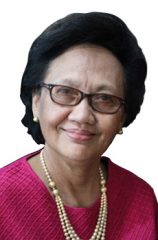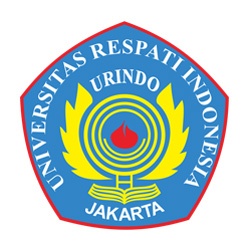In conversation with
Prof. Dr. drg. Tri Budi Wahyuni Rahardjo, M.S
Rector | Universitas Respati Indonesia

Higher Education Spotlight: What would you identify as the main philosophy and guiding spirit of Respati?
Prof. Tri Budi Wahyuni Rahardjo: Our primary concern as a university is to be experts at developing an entrepreneurial academic community and internationally recognised by 2025. We must improve this university’s ability to provide students with the opportunity to be an entrepreneur. In whatever discipline they would like to work, entrepreneurship is our priority. Using an entrepreneurial spirit means that our students and graduates will be independent and able to provide services to the community- not just employees at someone else’s company.
How do you manage to find balance between teaching, research, and your duties as rector?
Prof. Tri Budi Wahyuni Rahardjo: It’s true, there should be balance, but a rector has to prioritise. We have to start with good governance, meaning we can delegate to departments according the vision, mission, and objectives of the university. For example, we have a vice-rector for academic issues, a vice-rector for finance and institution, and a vice-rector for students. This means that the activities should be directed by vice-rectors with guidance from the vision, mission, and objectives of the university. This is how I manage the university and my multiple responsibilities.
We are a private university and therefore we must work together with the foundation. We must harmonise the vision of the university with the vision of the foundation. This is not easy, but we must try. This is my special role as a rector.
Which areas of research will you focus on in order to contribute to the national goal of increasing the R&D within higher education learning institutions?
Prof. Tri Budi Wahyuni Rahardjo: I was a member of the team who established a traditional and herbal study program at the University of Indonesia. Through this I moved back to my focus on aging. I promote prevention of illness and declining cognition with age and improving quality of life among older people.
We are doing work in aromatherapy, through which we collaborate with Martha Tilaar, a very famous figure in the Indonesian cosmetics and beauty industry. In her parlours they use aromatherapy based on traditional Indonesian methods. Three of my students are developing theses on this. How aromatherapy can be effective in fighting declining cognition, how aromatherapy can be used to relieve anxiety, and another which uses the Indonesian dish tempeh.
For the latter, we compare tempeh’s effect on cognition decline with that of tofu. In tempeh there is not only soy, but in the process of fermentation folic acid is produced. In tofu this does not happen because there is no fermentation. The student performing this research has already published several papers, some in international journals.
In addition, I also contribute to the development of ageing policies and programs at the national and international level. As the Rector of the University of Respati Indonesia, and as an active researcher in ageing issues, I also place ageing issues research as part of our sustainable development efforts. It is in line with my experiences supervising PhD students in Gerontology/ ageing issues at several universities in Indonesia, and also at Loughborough University ,UK, since 2000. I also have experience as an external examiner for PhD programme on Population and Ageing at the Australian National University (ANU), in 2013.
I have been a member of Indonesian Gerontology Association since 2001; member of Board of Active Ageing Consortium Asia Pacific (ACAP) since 2009; Temporary Advisor to WHO SEARO in 2013 ; Technical Advisor for Global Healthy Ageing Strategy to WHO in 2015; and Member of Steering Board of APRU Population Ageing Research Hub, since 2014. I was also a member of National Commission for Older Persons (NCOP) Indonesia 2005 – 2011. I have been working with Asian Ageing Business Center ( AABC ) Fukuoka Japan, supported by Japan Foundation and Toyota Foundation on Long Term Care since 2014.
My current research interests include the fields of Ageing and Dementia, Age Friendly Communities and Cities, Long Term Care and Quality of life of older persons, as well as care giver issues. Since 2010, I have published around 30 articles in collaboration with national and international partners. I have been initiating the establishment of Indonesia Gerodontology Association since 2006, and member of this association since 2016. Since 2015, these issues have been implemented at the University of Respati Indonesia.
How do you believe your students are benefiting from having access to the foundation’s hospital? And how do you promote entrepreneurship?
Prof. Tri Budi Wahyuni Rahardjo: There are two ways to promote entrepreneurship. First, in every study program there’s a spirit of entrepreneurship there. We also push the students to do community service- improving the community through entrepreneurship.
We realise that we have limitations in our ability to provide entrepreneurial education to our students. We have limitations in improving the capability of our staff in providing this kind of education so we collaborate with Rumah Perubahan, a private institution that develops human resources and social entrepreneurship.
As I mentioned before, we are involved in improving the quality of life for older people. The proportion of the Indonesian population which you would categorise as old-aged is growing. We want to maintain their quality of life and keep them involved in the community. To that end, we pioneered the Active Aging Program.
Eighty per cent of older people are still active. We thought about the kinds of activities they have to do, so we referred to the International Council on Active Aging because there are several dimensions to consider when measuring quality of life. Older people need spiritual and intellectual stimulation. Reading is often encouraged for intellectual stimulation but many of our older people are illiterate. We created a program of activities that even those with a low level of education could benefit from, including physical exercise and nutrition.
There is a vocational aspect to quality of life. It’s important that people feel useful and able to provide for themselves to some extent. Not necessarily big money, but enough to nurture their self-confidence.
Environment is extremely important, but in Indonesia it is still poor. For example, there should be accessibility in buildings and public areas for those with limited mobility. There is still much to improve in the sense of physical environment, but we are happy because our social environment is good. Our community is aware of the issue of quality of life for older people.
There are many NGOs in Indonesia that provide services for aging people, especially those who are disabled. These individuals need long term care. Here at Respati we have the Faculty of Health Sciences and a nursing program. We collaborate with Japan, Korea, and the University of Indonesia Centre for Aging Studies. We are initiating an international centre of training for the long term care of older people that will be founded at Respati. We hope for this to start formal development in 2017.
What opportunities do you see being created by ASEAN? Do you believe that Indonesia is fully taking advantage of the establishment of ASEAN?
Prof. Tri Budi Wahyuni Rahardjo: Oh yes, very much so. We have to start with recognition of our similarities as Southeast Asian states, organisations, and people. We have to develop something that can be the umbrella that unites our joint activities in education and research. We have similarities in demography- a decrease in under-5s and an increase in the elderly population, for example. We have similar cultures, languages, cuisine, and even weather!
From that awareness of our shared experience we must work together to define what we want to do. From there we must define how we will utilise our collaboration to improve education, how we share our skilled graduates among countries, and define shared standards.
What is your vision for Respati University? How do you imagine it in 10 years time?
Prof. Tri Budi Wahyuni Rahardjo: We are working on our roadmap right now. Starting in 2017, our target is that 10% of our graduates will be accepted in the workforce in ASEAN. In 2020 hopefully 20%, and by 2030 hopefully 30%.
In 2025 we hope that around 5% are also involved in the international workforce all around the world. This means that our research should be internationally recognised, and our students should have international certification. Our staff will also be involved in international teaching.
At the moment we are a very small university, with one main campus and a much smaller secondary campus. In 2017 we will be starting with establishing our third campus specialising in research and development and expanding the capacity of our university library. We will need a lot of cooperation with the foundation to achieve this, so we must be fully aligned with them.
What would you tell your graduates to prepare them for the working world in Indonesia and globally?
Prof. Tri Budi Wahyuni Rahardjo: The most important thing is that everything should be evidence-based. This means that whoever would like to do research or teaching on aging should understand what exactly aging is. They need to know the data about aging, universally, in Asia, and in Indonesia. Not just demographics, but we need to regard all aspects of ageing population .In addition, they should have clear passion about this entire issue.
From there they can go wherever they want with their knowledge.
